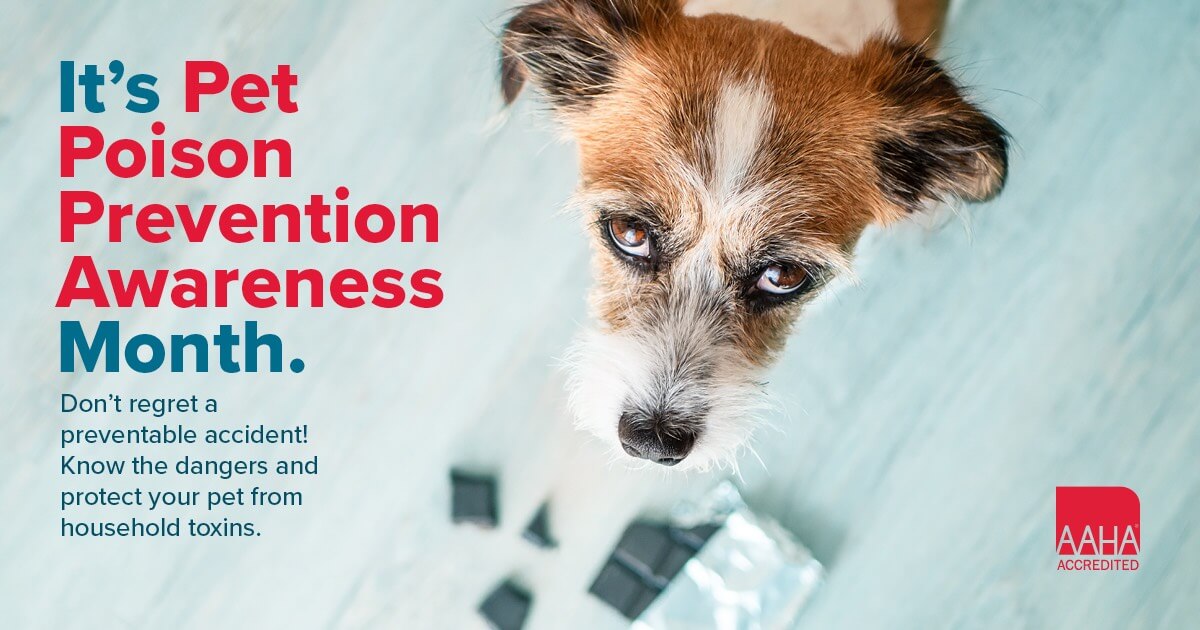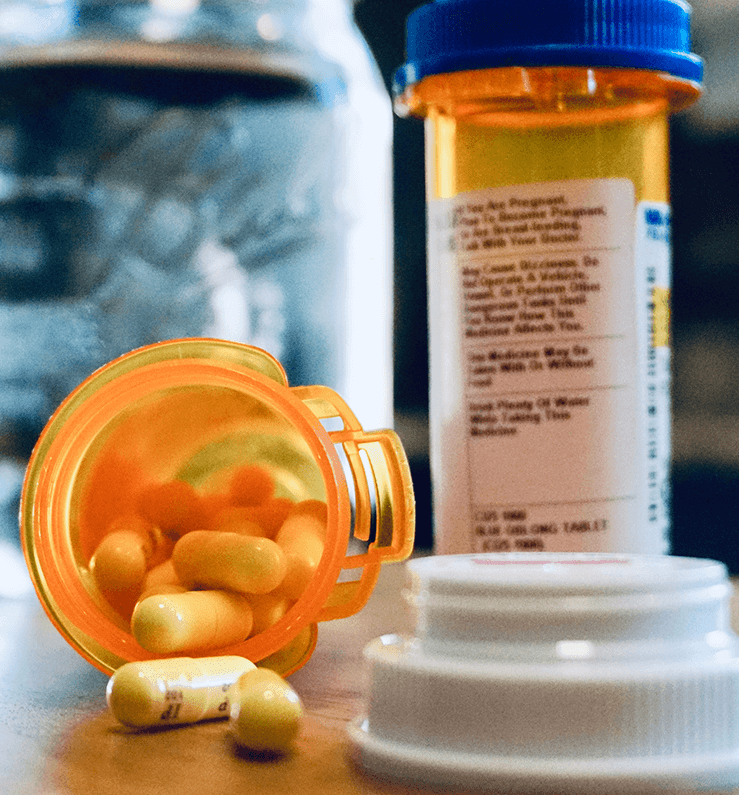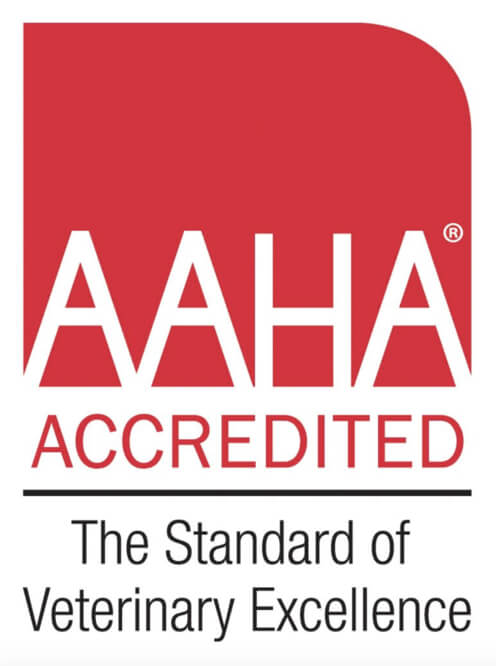
The month of March has been dedicated to Pet Poison Prevention Awareness in order to build awareness about the many different poisonous items that can be harmful to pets. A good proportion of these dangerous items can be found in your average household.
In this article we will list some of the more common items that are considered poisonous to pets, but we also want to highlight the importance of acting fast and taking the right steps if you suspect your pet has ingested something poisonous.
Steps to help protect your pet against poisoning
- Keep toxic substances out of reach: Store household cleaners, medications, pesticides, and other toxic substances in a secure place where your pet can’t access them.
- Properly dispose of hazardous materials: Follow the proper disposal instructions for toxic substances, and be careful not to leave any hazardous materials lying around where your pet can get to them.
- Keep your pet away from hazardous areas: If you have an outdoor pet, keep them away from areas where pesticides or herbicides have been sprayed. Similarly, keep indoor pets away from areas where you’ve recently used cleaning products or other hazardous substances.
- Know which foods and plants are toxic to pets: See the lists below for some common examples
- Keep emergency numbers handy: Keep the phone number of your veterinarian, an animal poison control center, and an emergency animal hospital in a prominent location where you can easily access it in case of an emergency.
What do do if your you believe your pet has ingested a poisonous substance?
- Get any remaining amounts of the poisonous substance out of your pet’s reach.
- Know the signs of poisoning: Symptoms of poisoning can include vomiting, diarrhea, lethargy, loss of appetite, seizures, and difficulty breathing.
- Contact your veterinarian’s office or an emergency vet. There are also Pet Poison Hotlines available (most have a charge associated with the call) (A good list of some options can be found here.)
- Collect a sample of the substance to your vet or emergency hospital.
- If you pet has vomited as a result of ingesting the substance, then it may be helpful to collect a sample to bring to the vet or emergency hospital a they may be able to test it.
- Different poisons have different times that for the effects to become noticeable. Always err on the side of caution. The sooner you are able to contact your vet or seek expert advice, the better it is for your pet. Regardless if your pet is not immediately displaying any outward signs of distress or effects, it would still be prudent to contact your vet or a hotline and perform the steps listed above.
Medications
 According to the ASPCA Animal Poison Control Center, the number one cause of poisoning in pets is prescription and over-the-counter drugs, both of the human and pet variety. Common OTC pain killers like acetaminophen (e.g., Tylenol) and non-steroidal anti-inflammatories (e.g., Advil, Aleve, Motrin) are toxic to pets. Prescription antidepressants, cardiac, and ADHD medications are common concerns for pets as well. Be sure to keep ALL medications, including those prescribed to your pets, in locked cabinets or high cupboards. Store ALL medications in a safe place that your pet will not be able to gain access to. If your pet has ingested any form of human or pet medication in excess, consider it a potentially harmful substance and contact your veterinarian or poison hotline for consultation.
According to the ASPCA Animal Poison Control Center, the number one cause of poisoning in pets is prescription and over-the-counter drugs, both of the human and pet variety. Common OTC pain killers like acetaminophen (e.g., Tylenol) and non-steroidal anti-inflammatories (e.g., Advil, Aleve, Motrin) are toxic to pets. Prescription antidepressants, cardiac, and ADHD medications are common concerns for pets as well. Be sure to keep ALL medications, including those prescribed to your pets, in locked cabinets or high cupboards. Store ALL medications in a safe place that your pet will not be able to gain access to. If your pet has ingested any form of human or pet medication in excess, consider it a potentially harmful substance and contact your veterinarian or poison hotline for consultation.
Common Foods and Household Items
- Alcohol
- Bones
- Caffeine
- Products containing Xylitol
- Chocolate
- Citrus oil extracts
- Macadamia nuts
- Grapes and raisins
- Moldy foods
- Rodentcides or insect control poisons
- Cleaners, solvents, paint thinners, garden chemicals
- Anti-Freeze
Plants
 Certain plants can be extremely poisonous to animals, even in small quantities. For a more detailed list of all plants that can be poisonous to pets click here. Some of the more common and frequent plant poisonings include these plants:
Certain plants can be extremely poisonous to animals, even in small quantities. For a more detailed list of all plants that can be poisonous to pets click here. Some of the more common and frequent plant poisonings include these plants:
- Lilies (cats) Easter, Asiatic, Daylilies
- Azaleas/Rhododendrons
- Tulips, daffodils and other bulb plants
- Sago Palms (and seeds)
- Marijuana
- Oleander
- Castor Bean
- Cyclamen
- Kalanchoe
- Yew

